Posted on 12/19/2025
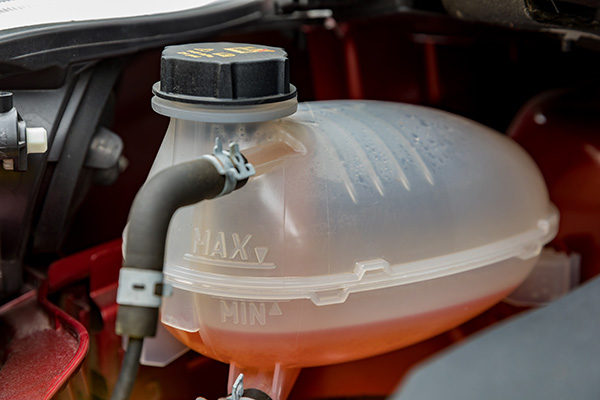
Coolant is one of those fluids people almost forget exists until they see steam or a temperature gauge climbing. What you do not see is the slow chemical change happening inside the engine long before it overheats. Old coolant quietly eats away at metal from the inside, and by the time the damage shows up, you are often looking at repairs far beyond a simple flush. Why Coolant Does More Than Just Prevent Overheating Most drivers think of coolant as colored water that keeps the engine from boiling over or freezing. In reality, it is a carefully blended fluid that also carries corrosion inhibitors, lubricants for the water pump, and additives to protect aluminum, steel, and rubber. When it is fresh, it keeps temperatures stable and surfaces protected. As miles and years go by, those protective additives are used up. The coolant still looks “wet and colorful,” but its chemistry is different. At that point, the system is far more vulnerable to ru ... read more
Posted on 11/28/2025

Icy mornings love to glue doors shut right when you are running late. It happens when moisture sneaks onto the rubber weatherstrips, into the latch, or around the window frame, then freezes. A little planning the night before and the right moves in the morning keep seals healthy and your fingers warm. Why Doors Freeze in the First Place Water gets in from wet weather, car washes, melting snow on your coat, or overnight frost. Rubber seals hold a thin film of moisture, which bonds to the painted door frame when temperatures drop. If the window glass sits a touch low, meltwater slips past the outer sweep and freezes at the inner seal. Latches and lock cylinders can also hold water that turns to ice, leaving the handle feeling dead. Night-Before Prevention That Works Wipe the door jambs and rubber weatherstrips dry with a clean microfiber. Treat the rubber lightly with a silicone-based rubber protectant or glycerin stick. Apply a thin film and wipe o ... read more
Posted on 10/31/2025
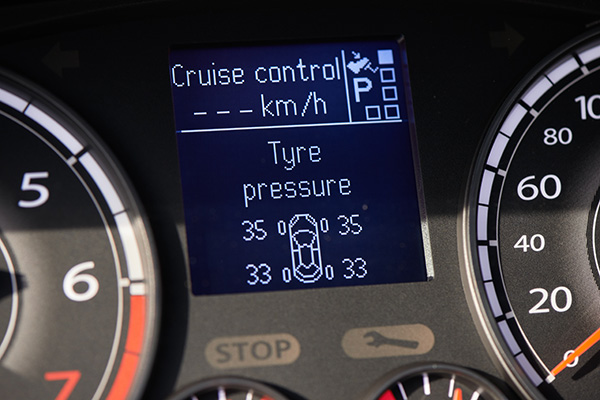
Your tire pressure monitoring system (TPMS) is supposed to help you stay safe by alerting you when a tire is underinflated. But what if the warning light comes on and your tire pressure is perfectly fine? It’s not uncommon for drivers to see that TPMS warning and check their tires, only to find everything looks normal. So what’s going on? The answer might be that your sensor isn’t telling the whole truth. Let’s look at how this system works, what can cause it to give false warnings, and how to tell when it's the sensor, not the tire, that’s the real issue. What Does the TPMS Actually Monitor Most modern vehicles are equipped with direct TPMS. This type uses a pressure sensor mounted inside each wheel, typically as part of the valve stem. These sensors measure the actual air pressure in the tire and send that data to the car’s computer. When one or more tires drop below a certain threshold, usually around 25 percent below the r ... read more
Posted on 9/26/2025

If you’re driving in a straight line and notice that your steering wheel sits tilted, it’s not just a visual annoyance. It usually means that something within your steering or suspension system is out of alignment. While it might not seem urgent, a crooked steering wheel often points to an underlying issue that can lead to tire wear, poor handling, or long-term suspension problems. Ignoring this early warning sign can allow smaller alignment or steering issues to grow into more expensive repairs. The Most Common Cause Is Misalignment In many cases, a crooked steering wheel is caused by misaligned wheels. Alignment refers to how precisely your wheels are angled relative to each other and the vehicle’s frame. When those angles shift, even slightly, your steering wheel can become off-center to compensate. This often happens after hitting a pothole, driving over a curb, or replacing steering or suspension parts without realigning the wheels. Even if y ... read more
Posted on 8/29/2025
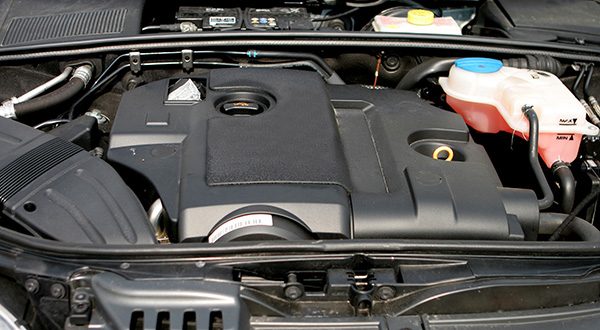
It can be unsettling to park your car, turn off the ignition, and still hear strange sounds coming from under the hood. Some of these noises are harmless, but others could point to issues that need attention. Post-shutdown noises often originate from heat, cooling cycles, or mechanical systems that continue to run briefly after the engine stops. Knowing which sounds are normal and which are concerning helps you decide whether a trip to the repair shop is necessary. Normal Cooling Noises Engines generate a lot of heat during operation, and even after you shut them off, that heat continues to dissipate. It’s common to hear clicking, pinging, or ticking sounds as metal components expand and contract during cooling. Exhaust pipes, catalytic converters, and engine blocks all produce these noises naturally. They usually fade within a few minutes and don’t indicate a problem. Radiator and Cooling Fan Sounds Modern vehic ... read more
Posted on 7/29/2025

When summer heat kicks in, stepping into a sun-soaked car can feel like entering an oven. But does your car's color actually make a difference in how hot it gets? The short answer is yes—and if you’ve ever touched the surface of a black car on a sunny day, you’ve probably felt just how much hotter it can be compared to a white one. Understanding the role of vehicle color in temperature buildup can help you make more informed choices about your car, your comfort, and how to protect your vehicle in hot weather. Why Color Affects Car Temperature The main reason car color influences heat buildup is due to how different colors absorb or reflect sunlight. Dark colors, like black and deep blue, absorb more of the sun’s radiation, including both visible light and infrared heat. Light colors, particularly white and silver, reflect a higher percentage of that energy. That means a black vehicle absorbs more heat than a white one under identical con ... read more
Posted on 6/27/2025
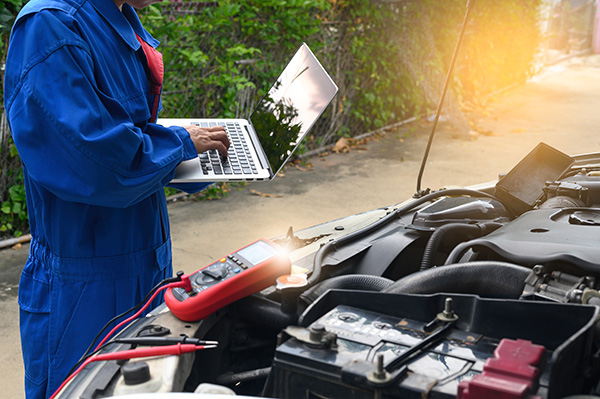
Modern vehicles are loaded with technology, and at the heart of it all is the engine control unit (ECU). Often described as your car’s “brain,” the ECU manages key functions like fuel injection, ignition timing, emissions control, and more. It's programmed at the factory to strike a balance between performance, fuel economy, and environmental standards. But what if you could adjust that programming? Many car owners have wondered if ECU reprogramming, sometimes referred to as “tuning” or “flashing,” can unlock additional performance from their vehicle. The answer is yes, under the right circumstances, reprogramming your ECU can lead to noticeable improvements. However, it’s not something to take lightly. Why Manufacturers Use Conservative ECU Settings Car manufacturers program ECUs with a wide safety margin. They must consider varying fuel qualities, emissions standards, altitudes, driving styles, and climates acros ... read more
Posted on 5/30/2025
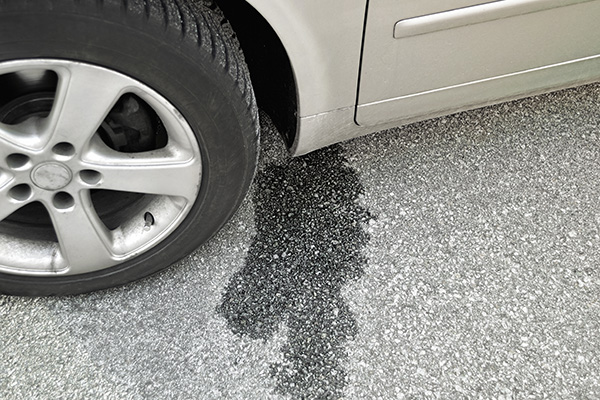
Coolant leaks are one of the most common vehicle issues and also one of the most dangerous to ignore. If you’ve spotted a puddle of green, orange, or pink fluid under your car, it’s a clear sign something in the cooling system isn’t working properly. While it may be tempting to keep driving, especially if the car still runs fine, doing so can lead to major engine damage. The real question isn’t just whether the car will keep running. It’s whether it’s safe to drive and for how long before serious trouble begins. Why Coolant Is So Important Coolant, also known as antifreeze, regulates the temperature of your engine. It circulates through the engine block, absorbing heat, and then travels to the radiator, where that heat is released. Without it, your engine can overheat quickly—even after just a few minutes of driving. Coolant also prevents freezing in cold temperatures, lubricates important components like the wa ... read more
Posted on 4/28/2025
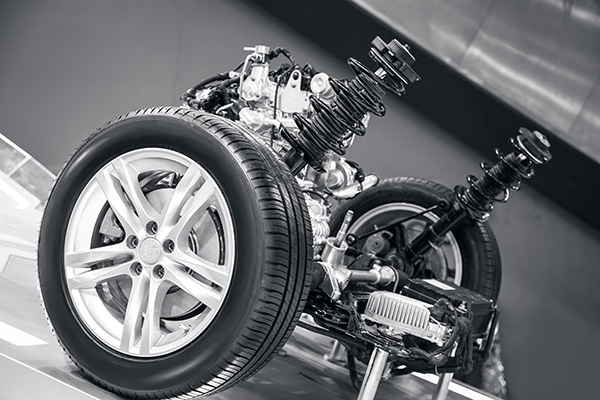
Your car’s suspension system does more than just provide a smooth ride—it helps maintain control, handling, and overall safety. When something starts to go wrong, the symptoms can be subtle at first, but they often become more pronounced over time. If you’ve noticed your car doesn’t feel quite right on the road, it could be your suspension trying to tell you something. Here are six signs that may point to suspension problems and why they should be addressed sooner rather than later. 1. Excessive Bouncing Over Bumps If your car continues to bounce several times after hitting a bump or pothole, that’s a classic sign your shocks or struts may be worn out. These components are responsible for absorbing road impacts and keeping your tires in contact with the ground. When they weaken, the vehicle’s ability to stabilize quickly is compromised, leading to a rough, unpredictable ride. 2. Pulling to One Side While Driving ... read more
Posted on 3/28/2025

You pull out of your driveway, and something feels off—but you don’t think much of it until you see that glowing brake warning on your dashboard. Then it hits you: you forgot to release the parking brake. Maybe you caught it early, maybe you didn’t—but now you’re wondering if any damage was done. It happens more often than people admit. Whether it’s a manual handbrake or an electronic button, driving with the parking brake engaged (even slightly) can affect your car in more ways than you’d think. Sometimes, the consequences are mild. Other times, they can get expensive—fast. How the Parking Brake Works Your parking brake—also called the emergency brake or e-brake—is designed to keep the car stationary when parked. In most vehicles, it bypasses the hydraulic brake system and operates mechanically, either with a cable or electronic motor that applies the rear brakes. When it’s fully engaged, it holds t ... read more